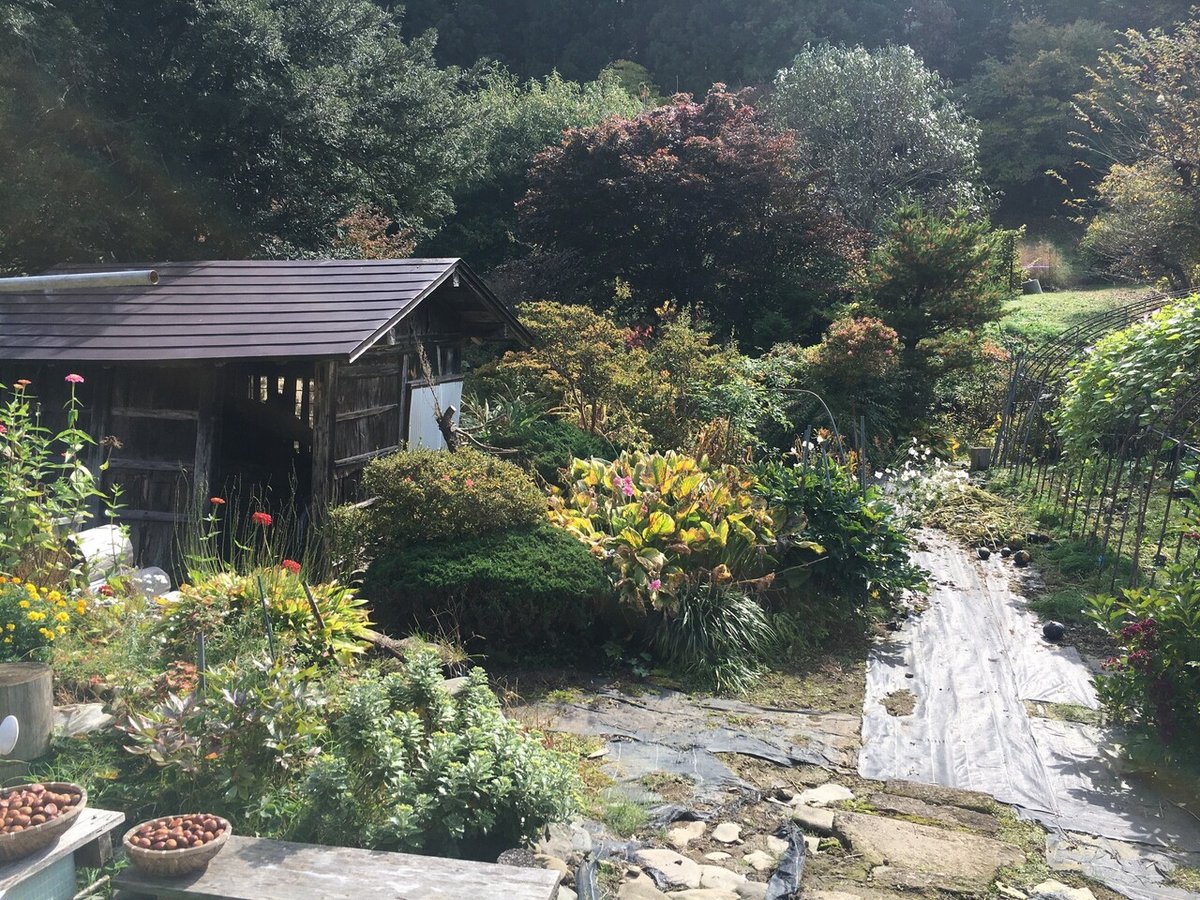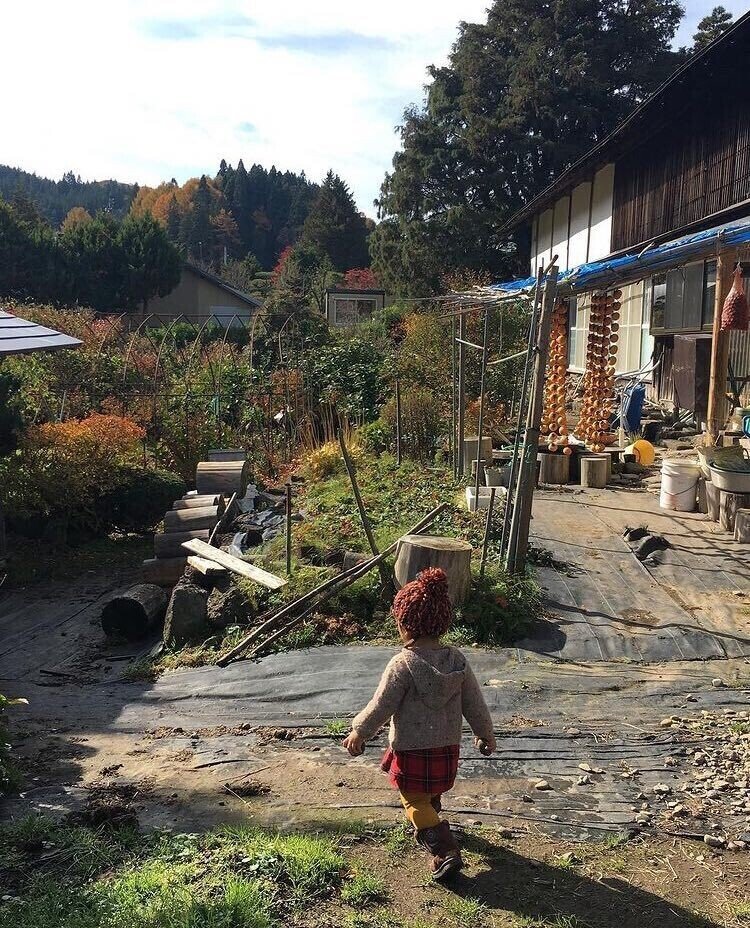
心象 Imagery vol.4 日常の力。自然とつながり、暮らしを紡ぐ心。The power of daily life. A heart that connects with nature and spins the threads of our lives.
ITLFローカルコーディネーター・ガイドの阿部が、岩手・八幡平の日々で感じること、このプロジェクトを通して皆さんにお伝えしたいことを、一個人の"心象"として描くシリーズ、第4回。In this series “Imagery”, ITLF local coordinator guide, Fumiko Abe will bring to you a description of everyday life in Iwate and Hachimantai, and what message we want to convey to everyone through upcoming tours and programs.
春夏秋冬、巡る季節がもたらす "変化"。
その喜びも厳しさも知り尽くし、ありのまま受け入れ、ときに受け流し、季節ごとの恵みを楽しみ、自然と共に暮らすひとがいる。
朝日に夕日に手を合わせ、山や森に挨拶し、雨の雪の風の言葉を聞き分け、身も心も震わす自然に向かい、自ずから、祈る。
その姿は、そのまま儀式の力を帯びて、この地とつながって見える。
季節ごとの自然の変化と共に、その一部となって繰り返す日々の暮らしが、この地に漂う空気とここに広がる風景をつくっている。
Spring, summer, autumn, and winter each bring seasonal changes with them. There are some people who enjoy the blessings of each season, and accept the changes that each season bring as they live together with nature.
They put their hands together and pray to the sun as it rises and sets. They greet the mountains and forests, listen to the words of the rain and snow, and yearn for nature that shakes their body and soul. From the outside, these actions appear as if they are a ritual performed so as to be connected to this land. But to these people it is done naturally as part of their daily life.
Such daily life routines, along with the seasonal changes in nature, creates the atmosphere and scenery of this area.

岩手北部、八幡平の安代地区に住む、佐藤ひとみさん。
「くしゃくしゃした気持ちのときは、山さ行ぐの。山ん中歩ってると、目につくとこに、もうあの花が咲いてる。きれいだな。あ、これ食べられるって。採るときは、全部でなく必ず残しておくの。帰ってくる頃には、もう気分よく水汲んでお湯沸かしたりして、あれこれ支度をはじめてる。そこに山があるおかげだよ。」
自分がどんな気持ちのときでも、いつでも足を運べて、受け止めてくれる場所がある、ということ。
寝ても覚めてもいつも変わらずそこにある山は、春夏秋冬とどまることなく変化し続け、またあそこであの木や花に出会える。山鳥や鹿や熊、ときに思いがけない姿も見せてくれたりする。
Hitomi Sato(Hitomi-san) lives in the Ashiro district of Hachimantai, in the Northern part of Iwate. She says, "When I feel crumpled, I go to the mountains. As I walk in the mountains, I found flowers blooming. It's beautiful. And also there are seasonal edible plants. I pick some of them and start to feel better. By the time I get home, I feel refreshed ready to carry water and boil it for cooking. Thanks to the mountains."
It is wonderful to have somewhere you can always visit and feel acceptance no matter how you feel. The mountains are always there, whether you sleep or wake, and are always changing through spring, summer, autumn, and winter. You can meet trees, flowers, birds and deer there, as well as bears too sometimes.

言葉で伝わらなくとも、そこに心身を委ね、気持ちを解いて、その場そのとき出会うものとつながり、そこに映し出される自分もまた変化する。それを繰り返し、生きていく。
楽しみもかなしみも、喜びも切なさも入り混じったような、もしくはそんな気持ちがふっと解かれ、リセットされるような感覚。
もう忘れてしまった記憶や懐かしさ、根源とつながる要素を思い出す。
それは千年以上前にも、一万キロ離れても、これから百年経っても、きっと同じように感じられること。
Even if you can't convey it in words, you can entrust your mind and body and connect with what you meet there. And it reflects in your feelings. We repeat this as we live.
It feels like a mixture of joy and sadness, or a sense that such feelings are suddenly released and reset. The sense that reminds us of some memories, nostalgia, and elements that connect to the roots that you have forgotten in the depth of your heart. This kind of feeling may have been the same more than a thousand years ago, or in somewhere 10,000 kilometers away, and may continue to be true a hundred years from now.

▲築100年以上経つ、木造の家の裏。Behind a wooden house that is over 100 years old.
台所からつながる庭と畑は、草木と花や野菜の実り、季節ごとの楽しみに溢れている。奥にある、美味しい沢水の湧くところを越えると、もうそこは山。
毎朝、台所に立っていると山の上から日が昇り、光に包まれていくのが嬉しい、という。
ひとみさんとお話ししながら、この地域の季節ごとのおかずやおやつの支度をしたり、裏庭や畑、家の周りを探検したり、ここでは自由に過ごせる。
Just outside the kitchen, you find the gardens and fields full of trees, flowers, vegetables, and even spring water. Behind that there is a path to the mountain. Every morning, when Hitomi-san stands in the kitchen, the sun rises from the top of the mountain and she is happy to be surrounded by light.
You are free to have a chat with Hitomi-san preparing seasonal side dishes and snacks, or exploring the backyard, fields, and her 100 year olds home.

"都会育ちで地方には縁がない"という人も、外国から来た人も、老若男女、誰もがどこか懐かしくホッとするような、あちこち覗いてワクワクするような、子どものような気持ちになれる時間、そんな場所。
いつの間にか、皆おばあちゃんの家に遊びに来たよう。ときには畳にごろりと寝そべる人も。
People who say "I grew up in the city and have no connection to the countryside", and people from abroad, men and women of all ages, everyone seems to feel nostalgic and relieved here, or feel excited to look around with curiosity. It's a place where you can spend time feeling like a child.
It feels like staying at grandma's house. Some people even lie down on the tatami mats.
ひとみさんは、いつでも、誰に対しても、同じように接する。
ひとみさん:「私はこうやってつくるけど、いろんなやり方があるから。思うようにやってみて」
ありのまま、いつものままに振る舞い、よく聞いて話し、笑う。
Hitomi-san treats everyone in the same way at any time, as she listens, talks, and laughs. Hitomi-san often says, "This is how I make it, but there are many ways to do it. Try it the way you want."


▲過去、フランス・イギリスからのゲストを迎えた体験の様子 Guests from France and UK in the past.
はじめて自分で作ってみると、おにぎりも何だか可愛く見えて、大事に食べる。心を込めて何かに触れると、それは自分の一部になる。
そんな風につながって生み出される、ひとみさんの暮らし。
The rice balls made by yourself for the first time, start looking cute. And you eat them carefully. When you touch something with all your heart, it becomes a part of you. Hitomi's life creates this sense of connection.


野菜や蕎麦、味噌や漬物、梅干しや干し野菜などの保存食をつくるときも同様で。
素材の扱い方、切り方、混ぜ方を見ていると、迷いも無駄もなく、手にする道具も自分のからだのよう。
塩や麹や、日光や風や火や、暑さ寒さの力もかりて。
干したり発酵させたり、時間や菌など見えない力に任せ、あとは待つ。
そうやって、ときには姿かたちの見えないものとも、気持ちを通わせているよう。
ひとみさん:「自然のものは、毎年同じではないから。これはどうかな?こうしたらもっと食べやすいかな?って、私はすこーしずつ変えてもいるの。きっと昔から、そうやって工夫して来たんだろうから。」
It is the same when she makes buckwheat noodles or preserved foods such as pickles, pickled plums and dried vegetables.
Looking at how Hitomi-san handles, cuts and mixes the ingredients, there is no waste or hesitation. And the utensils she uses everyday appear to be parts of her. Using the power of salt, koji, sunlight, wind, fire, heat and cold, she dries, ferments, and leaves them to the invisible powers of things such as time and bacteria. In that way, it seems as if she is able to communicate with something invisible.
Hitomi: "Natural things aren't the same every year. So, sometimes I change my recipes little by little for the best result. I'm sure people have been devising things that way for a long time."

▲串餅(くしもち)。おかゆと蕎麦粉を混ぜて、茹でたものを串に刺し、クルミ味噌を塗り、囲炉裏端へ。時折ひっくり返しながら、じわじわと炭火で焼いていく。Kushi-mochi: Mix rice porridge and buckwheat flour, thread a boiled rice cake onto a skewer, apply miso paste with walnuts, and put it to the hearth. Gradually bake with charcoal, turning it over occasionally.

▼口にすると皆、驚く、ふんわりとした食感と甘じょっぱい香ばしさ。大きく見えるのにペロリと平らげ、もう一本!というひとも。一度食べたらまた食べたくなる。Soft texture and salty sweet flavor. Unforgettable taste.

待つこと、受け入れること、かわすこと、見守ること。
必要なときは声をかけ、互いの存在や力を生かし合い、ときにはそっと距離を取ること。
Waiting, accepting, dodging, watching. Calling out to each other when necessary, making use of each other's existence and power, and sometimes just gently keeping distance.



▲乾いた松の木の根を、焚付けに使う。すぐに火がつき、驚くほど燃え続ける。Learning to use dry pine tree roots for burning. It fires quickly and continues to keep burning for a long time.
ひとみさん:「こういう暮らしって、縄文の頃から、そんなに変わってないと思うよ。」
山のもの土のものと触れ合い、沢から水を汲み、森や畑から実りを得て、火を熾す。目に見えぬ存在とも言葉を交わしながら、糧に感謝し日々を送る。
そうして不断の、普段の、常なる日々の糸を紡ぎ、自然と共に自らの世界を織り成す人。
それだけ聞いたら、確かにまるで魔法使いか、縄文人。
いま目の前にいる、訪ねて行けば変わらず迎えてくれる、ひとみさん。
そうして繰り返されてきたことが、"当たり前"だと笑う姿。
一万数千年以上続いた縄文時代の流れは、まだここにあるよう。
"昔から変わらない暮らし"は、”変わることを続ける暮らし"なのかもしれない。
Hitomi: "I don't think this way of life has changed so much since the Jomon period."
Someone who spends her days appreciating harvests from her field and mountains, interacting with the soil, drawing water, burning fire, and exchanging words with invisible beings. Who weaves her own world with nature by spinning the constant, ordinary, everyday threads.
Hearing so, we imagine it should be a witch or surely someone from the Jomon period. But it is Hitomi-san, right in front of you. She will welcome you as you visit. She smiles saying that what has been repeated in this way is "natural". It seems like the flow of the Jomon period(14,000-1,000BCE) which lasted about 14,000 years, still remains here.
"The way of life that has not changed since ancient times" may be "A life that continues to change".
(写真・文 阿部文子 ABE Fumiko)
この記事が気に入ったらサポートをしてみませんか?
